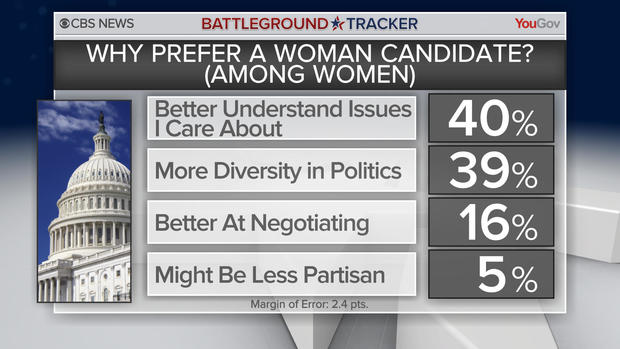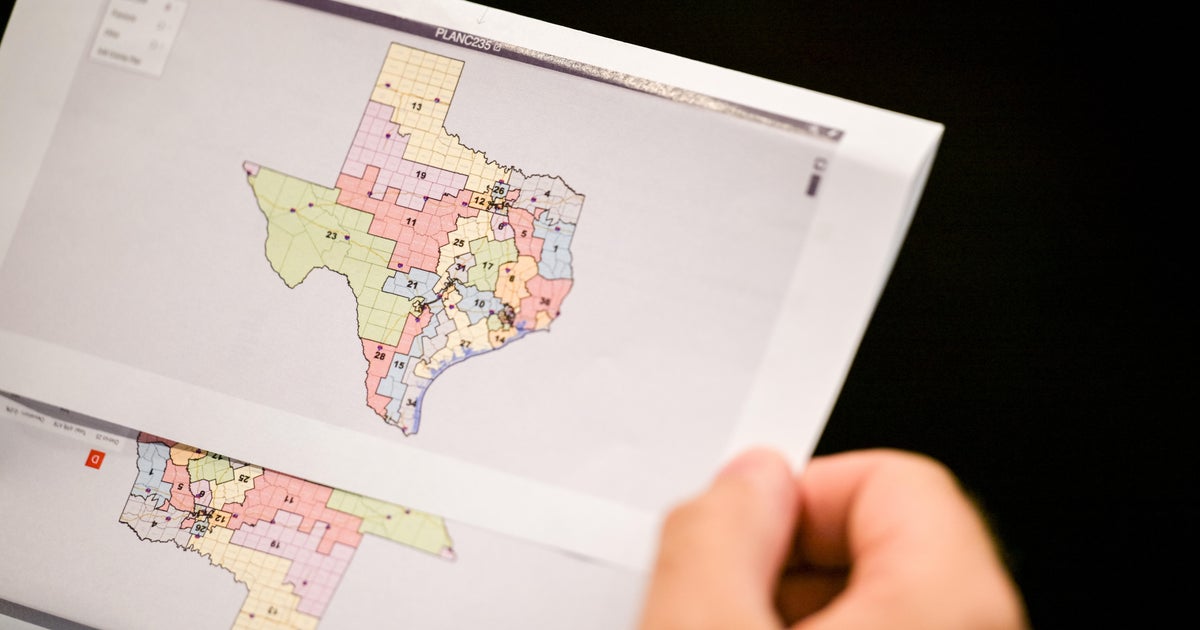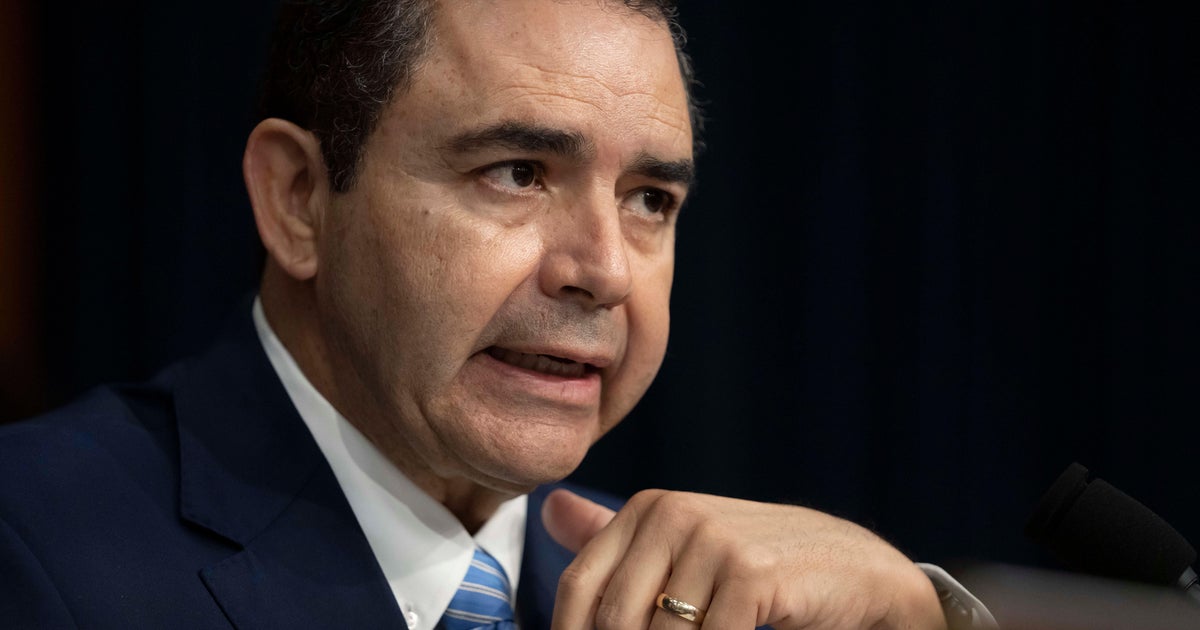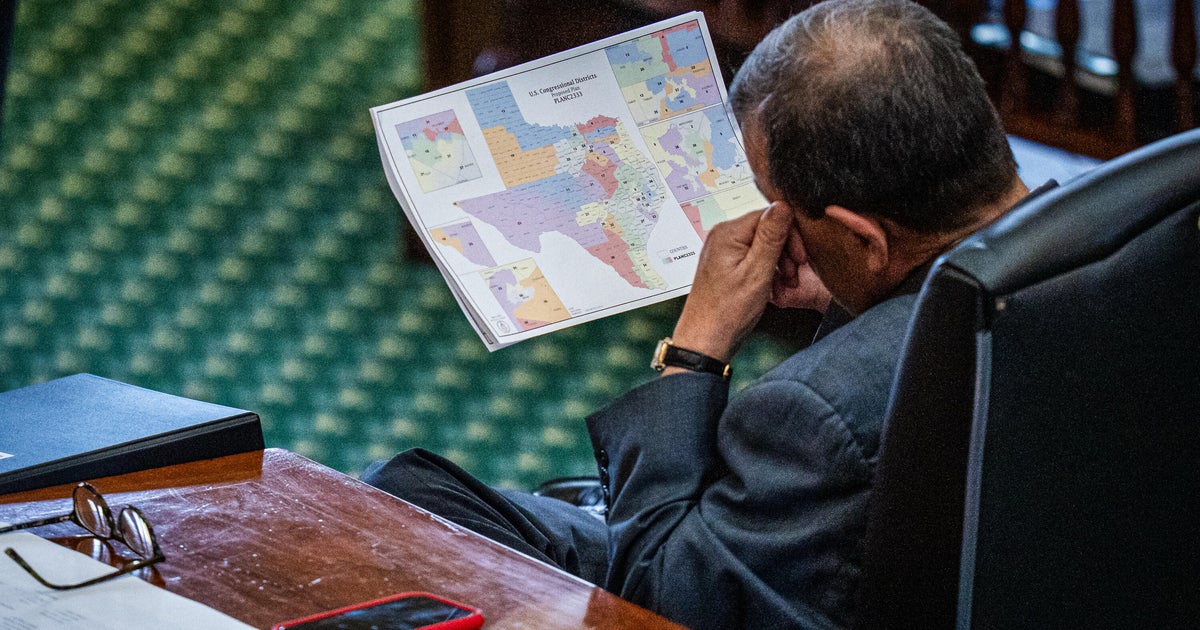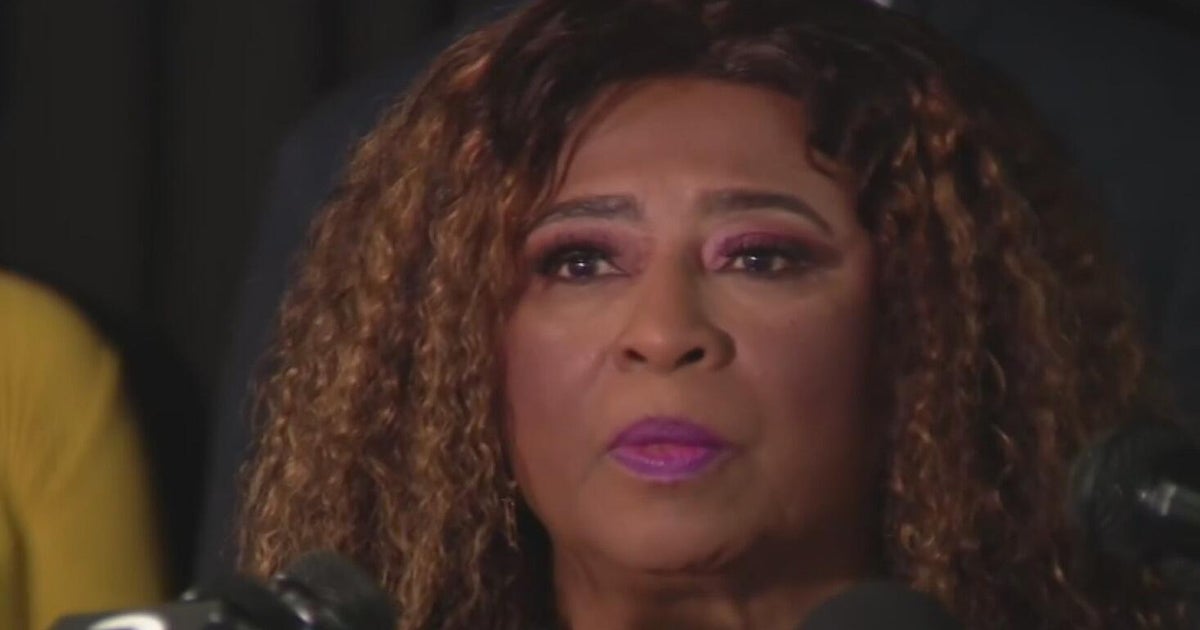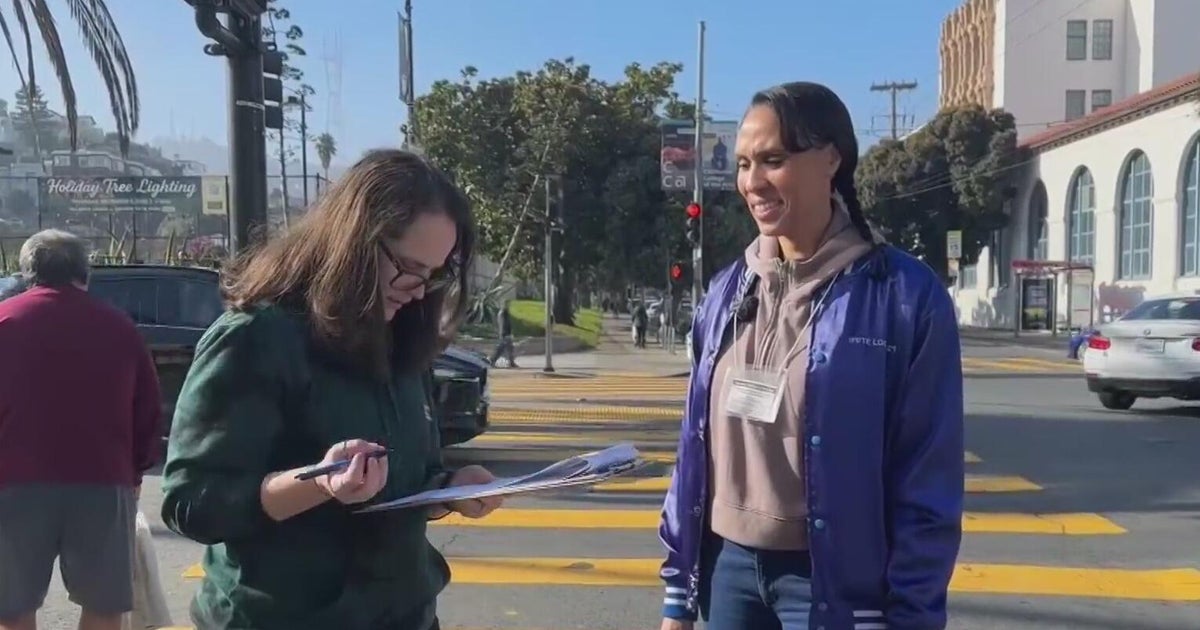Women voters and women candidates: CBS News Battleground Tracker
By Jennifer De Pinto, Anthony Salvanto, Kabir Khanna, Fred Backus
As a record number of women throw their hat in the political ring, women voters in battleground congressional districts are five times as likely to say they would choose a woman candidate (28%) over a man (5%) if both candidates agreed with them on policy and party. Men say they would choose a woman over a man as well, although by a smaller margin. Still, a majority of voters – both men and women – say a candidate's gender wouldn't matter.
Preference for a woman candidate is driven by Democrats. Democratic women (42%) are about three times as likely as Republican women (15%) to say they would choose the woman candidate in a race where both the man and the women shared their views.
Women voters who prefer a woman candidate over a man cite that women might be have a better understanding of the issues they care about (40%) and having more diversity in politics (39%) as their top reasons why.
Most voters view men and women as equal, not one better than the other, on a number of political attributes. For those who do pick a gender, more say women are better than men at finding ways to compromise and being honest and ethical. Both men and women voters hold these views.
These opinions may be informed by how Democratic and Republican women perceive gender equality in general. 70% of Democratic women say that men have more advantages than women do in society today, while 60% of Republican women say there's no advantage in either being a man or a woman.
As women make their voting decision, sending a message to Washington is a bigger factor for women intending to vote Democratic (71%) than it is for those supporting Republicans (62%). Fewer women say making sure the opposing party loses is a big factor, but most say it's a part of their decision-making.
Above all, a big part of women's vote decision is trying to support policies and legislation that they want. Whether they are planning to vote for a Democrat or a Republican for the House of Representatives this year, about nine in 10 say supporting policies they want is a big factor.
By 2 to 1, women trust the Democratic Party over the Republican Party on issues that impact women. Moderate and independent women give the Democratic Party the advantage here too, although compared to party stalwarts, fewer of these women say they trust either party on women's issues.
Health care is the issue women voters appear to consider most crucial to win their support. Nearly eight in 10 (78%) say a candidate must agree with them on this in order to get their vote, with Democratic women (86%) more so than independents (76%) and Republicans (73%).
Women across party lines express a lot of concern about the cost of health care, with Republican women having the most concern. Making sure everyone has health care coverage is far more of a concern for Democrats than Republicans. Democrats (85%) are more than twice as likely as Republicans (32%) to be concerned a lot about that.
There's also a partisan divide in how women view immigration. Democratic women are more concerned with immigrants being treated fairly, while Republican women are more concerned with keeping the wrong people out of the country.
The CBS News 2018 Battleground Tracker is a panel study based on interviews conducted of registered voters in 57 competitive and likely competitive congressional districts in the United States. The poll was conducted by YouGov, an online polling company. This poll was fielded between August 10–16, 2018 with 4,989 respondents. The respondents were selected from YouGov's online panels to be representative of registered voters in these districts in terms of age, race, gender, and education. The sample was weighted according to gender, age, race, and education, based on the American Community Survey, conducted by the U.S. Bureau of the Census, as well as 2016 Presidential vote, and post-stratified on district type.

